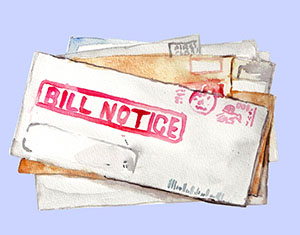
Course Description
Best practices for the accounts payable function are critical for those organizations concerned about their profitability. For poor practices result in excess cost, duplicate payments, increased processing expenses, fraud and frayed vendor relationships. And, of course there is the growing issue of regulatory compliance as the Feds and states look for their fair share.
This course presents information the professional can use to identify best practice problems as well as regulatory concerns. Industry expert Mary S. Schaeffer explains the issues related to the accounts payable function to auditors, controllers, and managers. She then reveals the best practices for a myriad of these issues as well as identifying almost best practices for those cases where it is not possible to use the best practice and the worst practices which are likely to cause trouble.
Learning Objectives
-
Objective 01
- Implement a best practice policy.
- Utilize a policy and procedures manual effectively.
-
Objective 02
- Establish strong master vendor file practices.
- Incorporate appropriate segregation of duties into master vendor file process.
- Create reasonable master vendor file cleanup practices.
-
Objective 03
- Create effective invoice receipt practices.
- Establish effective data entry rules for invoice processors.
- Construct best practice invoice handling routines.
-
Objective 04
- Define effective practices when short-paying invoices.
- Develop stands for handling unidentified invoices.
- Establish a process for managing discrepant invoices.
-
Objective 05
- Create effective processes for printing and signing checks.
- Design an suitable process for storing check stock.
-
Objective 06
- Understand the benefit of paying electronically.
- Develop a process to weed out fraudulent change of bank account requests.
- Construct a process to provide vendors with remittance information when paying electronically.
-
Objective 07
- Craft an operative p-card policy.
- Identify places where rebates on p-cards can be increased.
- Develop strong controls in a p-card program.
-
Objective 08
- Create a best practice process for payments made outside accounts payable.
- Develop a policy that limits emergency payments.
- Identify ways to pay small dollar invoices without issuing a check.
-
Objective 09
- Create an accurate policy and procedures manual with the least amount of fuss.
- Design a policy to update the policy and procedures manual on a regular basis.
-
Objective 10
- Create a strategy to avoid double payments when the original invoice is missing.
- Develop a policy to limit the intrusions in accounts payable.
- Identify lost funds through an effective supplier statement review policy.
-
Objective 11
- Design processing standards to limit problems.
- Develop routines to avoid making duplicate payments.
- Craft an effective policy for requiring backup for rush payments.
-
Objective 12
- Understand the importance of segregation of duties.
- Integrate the concept of segregation of duties across the payment process.
- Develop a list of issues to address when an employee leaves the organization.
- Uncover practices that will eliminate weak control points.
-
Objective 13
- Understand the importance of having a separate computer for online banking activities.
- Implement a mandatory vacation policy as well as a job rotation policy.
- Develop procedures for handling wire transfer information requests that do not enable fraud.
-
Objective 14
- Understand the importance of using positive pay.
- Implement strong controls around pre-printed check stock.
- Integrate check fraud prevention practices into the accounts payable process.
-
Objective 15
- Create a strong travel and entertainment policy the is compliant with IRS guidelines for the entire organizations.
- Develop procedures for verifying data and handling receipts.
- Understand why organizations are moving towards requiring the detailed meal receipt.
- Identify policy violations the detailed meal receipt might uncover.
-
Objective 16
- Understand why cash advances are counterproductive for the accounts payable function.
- Develop policies for handling travel issues created when employees leave.
- Create an efficient and effective policy for reimbursing employees for travel expenses.
-
Objective 17
- Understand what is required for information reporting to the IRS for independent contractors.
- Develop a policy that will enable the organization to conform with IRS reporting guidelines.
- Integrate use of IRS TIN Matching into the new vendor setup function.
-
Objective 18
- Understand the unclaimed property obligations of every organization.
- Create a policy that will enable the organization to report and remit unclaimed property in all instances.
- Develop a practice that takes advantage of social media to track down the rightful owners of your organization’s unclaimed property before it has to be turned over to the states.
-
Objective 19
- Construct a policy that includes accruing and reporting use tax for all the organization’s sales tax obligations.
- Incorporate regular OFAC checking into the payment process to ensure payments are not made to terrorists.
- Identify potential situations where a payment may actually be a bribe to a foreign official in conflict with FCPA regulations.
-
Objective 20
- Craft a policy for the receipt of invoices, regardless of the manner they are delivered.
- Create a process to effectively deal with invoices that are e–mailed.
- Develop a policy to address the emerging issue related to the use mobile devices (Smartphones and tablets) in accounts payable.
-
Objective 21
- Identify methodologies for communicating relevant payment information to vendors before problems arise.
- Develop a policy for effective communication with internal customers.
- Cultivate ways to work effectively with the purchasing department.
-
Objective 22
- Understand how payment timing can help and hurt the organization.
- Develop strategies for sharing critical payment status information with vendors.
- Create procedures to ensure all early payment discounts are earned.









